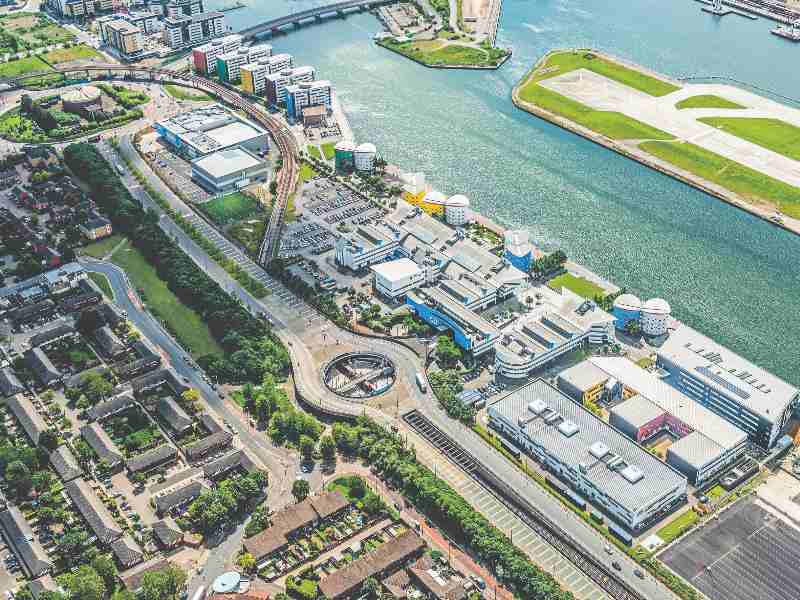
UEL has established a strategic partnership with Siemens to collaborate on their net zero carbon aspiration to 2030.
The two parties will identify opportunities to reduce overall energy use, drive the shift to renewable energy and transform their campuses in Docklands and Stratford.
The campus transformation aims to make each site carbon neutral by 2030 and enhance student and staff well-being. To this end they will be creating new learning opportunities, supporting a digital culture and rolling out intelligent technology.
Siemens x UEL
To help UEL meet its 2030 targets, Siemens is delivering improvement measures to cut the university’s energy consumption. They will also be delivering engineering solutions for producing low-carbon energy on-site and specifying and installing renewable generation infrastructure across the two campuses.
In parallel, the university is working with Siemens to embed sustainability across the curriculum to allow students to develop the skills they need to succeed in a green economy. The partnership is also exploring the creation of a Living Lab for teaching and research.
Focus areas
The net-zero carbon roadmap identified four focus areas for UEL’s campuses:
Introducing renewable energy sources to campuses and reducing overall energy consumption
The first project phase will immediately cut 10% of the university’s carbon emissions and reduce operational costs. LED lights will be installed in all buildings and the university’s building management systems will be upgraded.
Supporting sustainable enterprise
A second workstream will focus on engineering the design of sustainable energy technology. This includes solar panels installed on rooftops and in car parks, ground source or water source heat pumps fed by the Thames and electric vehicle charging solutions.
Photovoltaics alone could reportedly provide the university with a significant amount of zero-carbon, zero-cost energy annually. Most of this energy will be consumed on-site, with the remainder stored or exported to the grid.
During the second phase, Siemens will support UEL in creating an innovation hub for local green energy enterprises, giving students the opportunity to engage with the latest green technologies while on campus. UEL will also provide the opportunity for students to further strengthen their industry skills through mentoring and internships with Siemens.
Leveraging real-time energy data through a ‘Living Lab’
The third workstream of the partnership will see the development of a ‘Living Lab’, to make the data captured across the campuses available to students and researchers.
Live data can be stored on the Siemens Mindsphere platform, accessible to the university’s researchers and partners anywhere in the world.
To support the energy transition in the wider East London area, the University and Siemens will explore pragmatic ways of introducing local-scale energy projects that make an immediate difference to local communities.
Nurturing a strong talent pipeline
Faye Bowser, head of energy and performance services, Siemens, commented on how the partnership signals UELs initiative to lead East London’s regeneration.
“The strong focus on partnership and community collaboration will stimulate the green economy in East London, as well as building a strong talent pipeline of graduates with a deep understanding of sustainability issues.”
The partnership between UEL and Siemens consolidates UELs attempts to act on climate change. In the past, it has led similar initiatives and has also engaged with local community partners on climate issues, working with councils across London to support infrastructure innovation.
With Siemens as its new strategic partner, the university is now hoping to take its ambitions further by becoming a blueprint for other urban net zero initiatives.